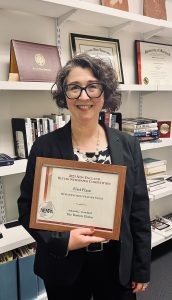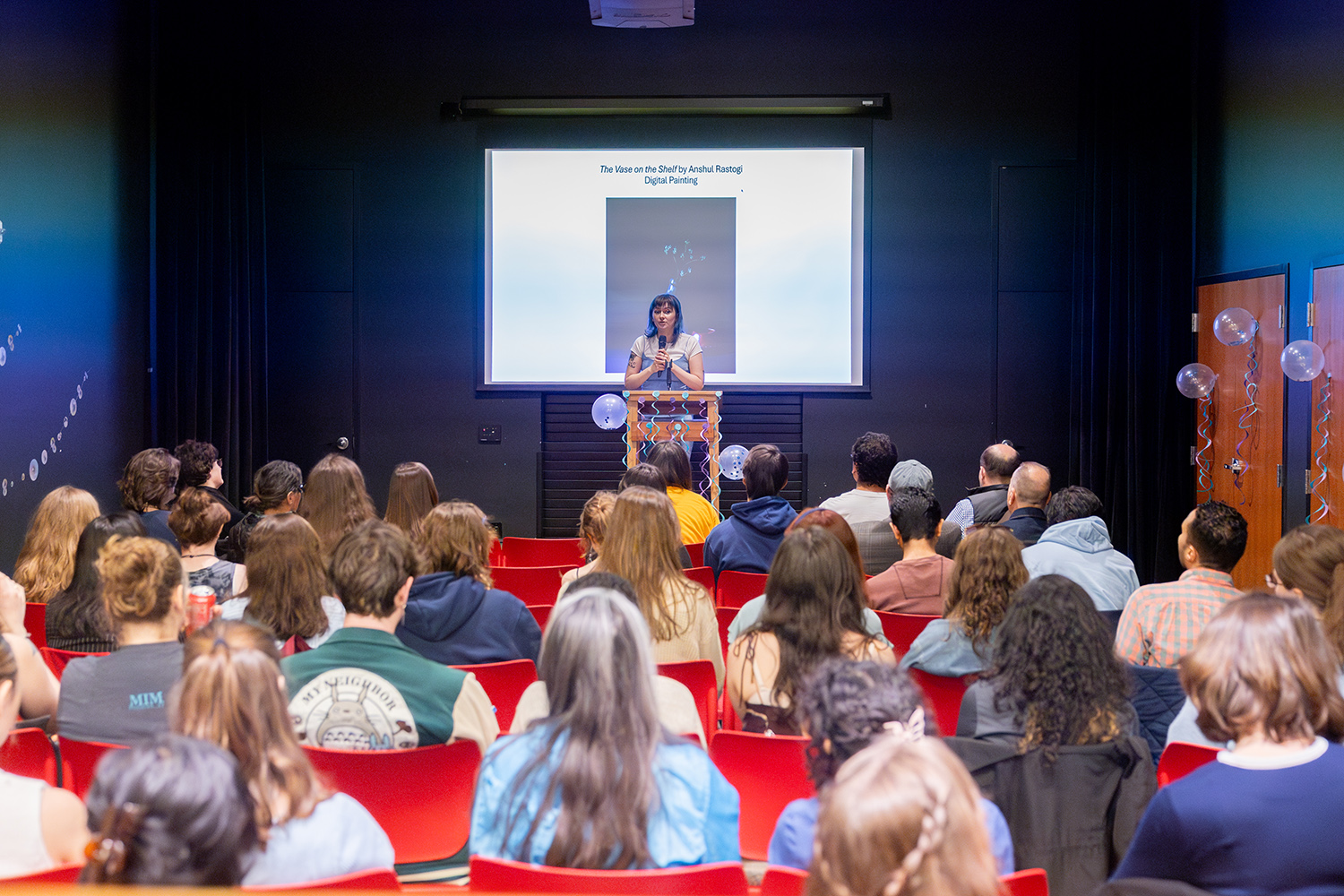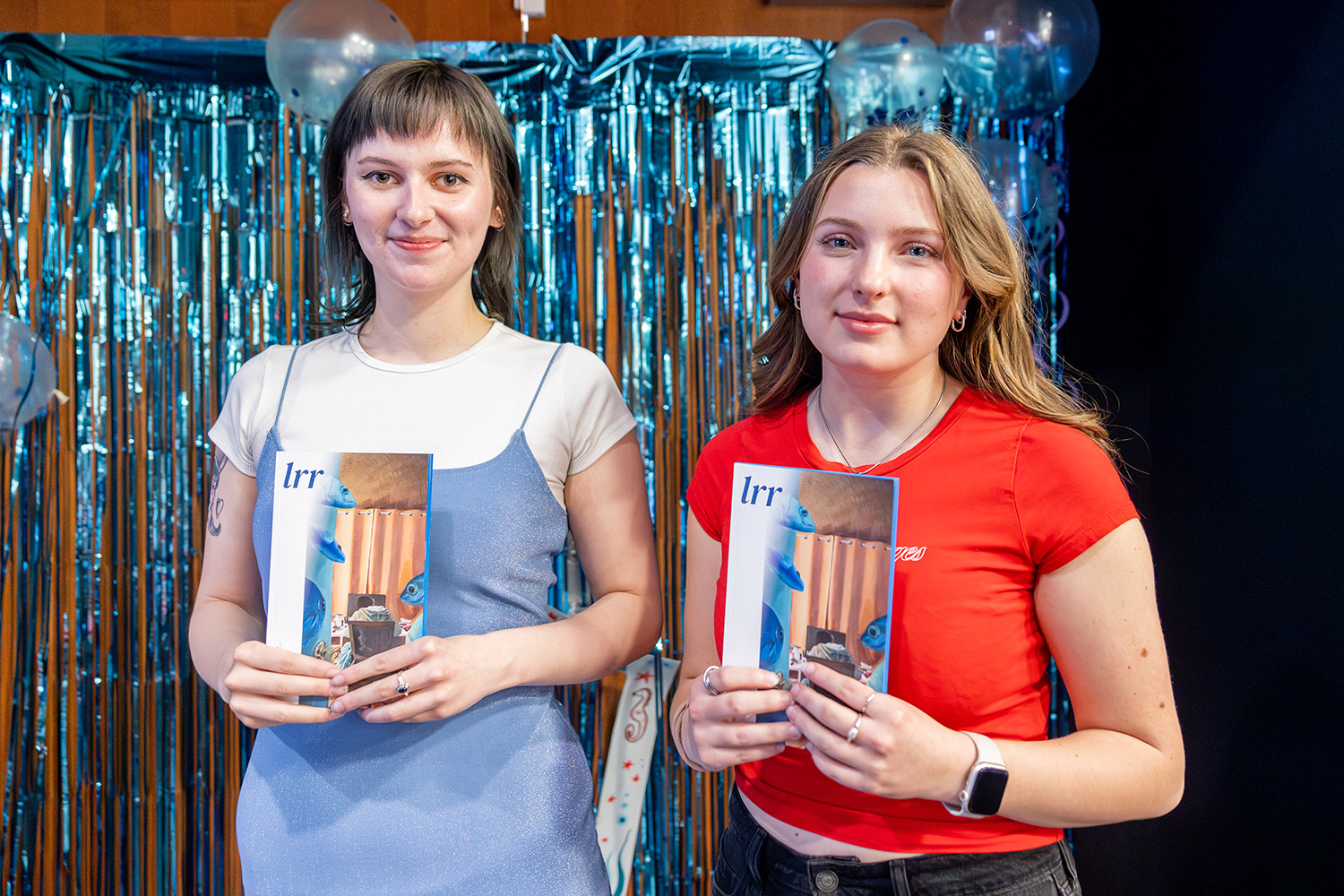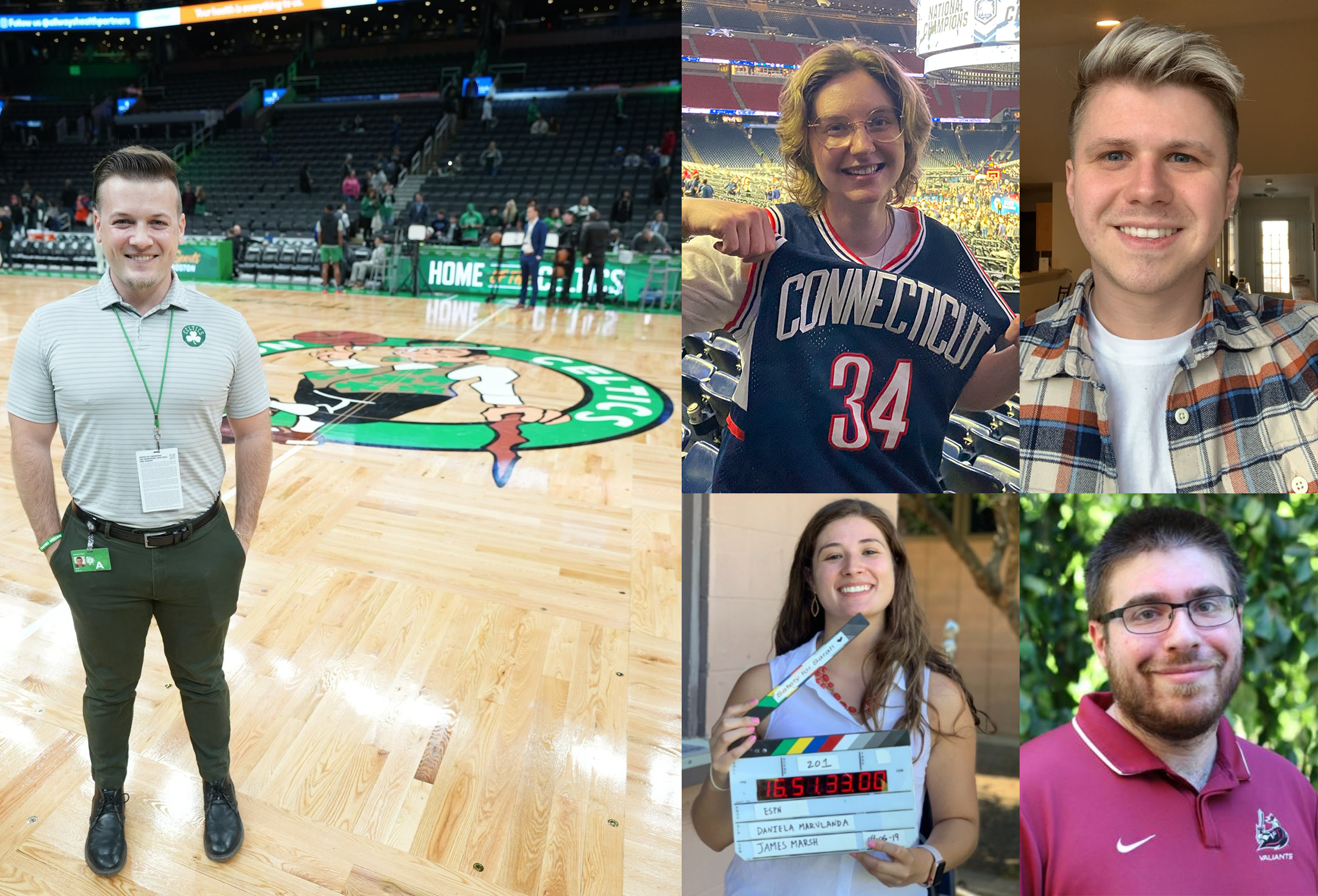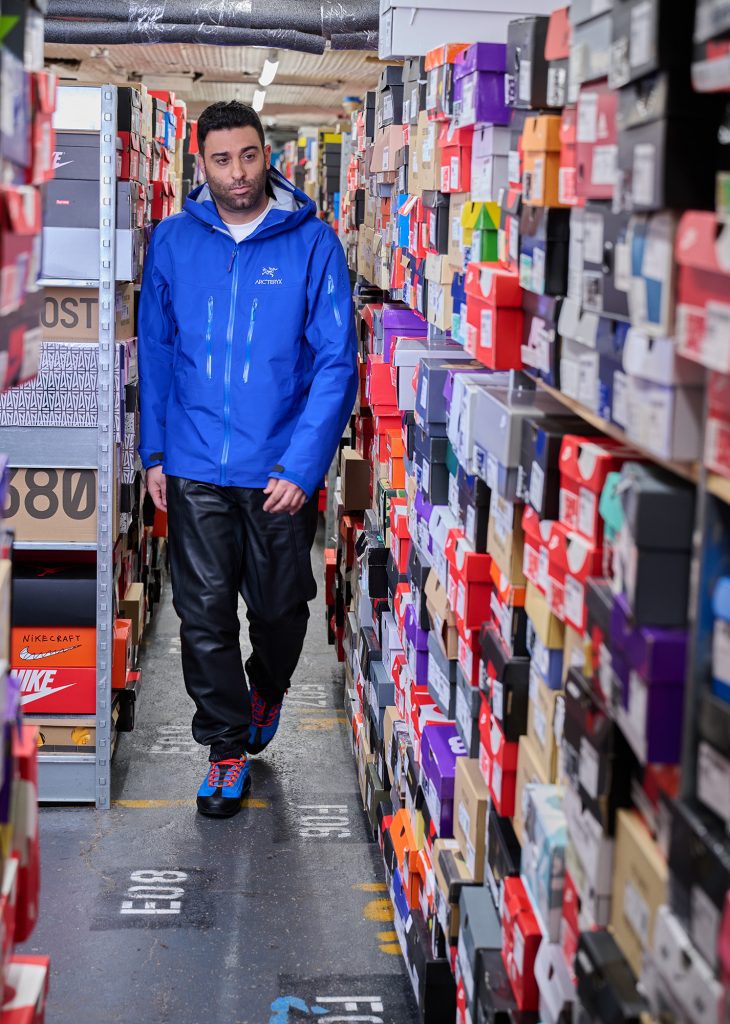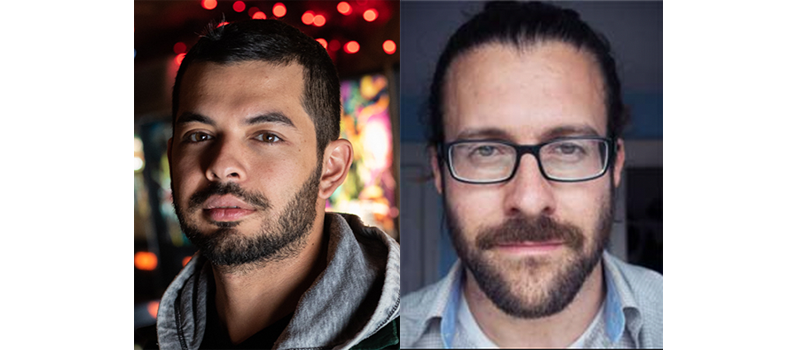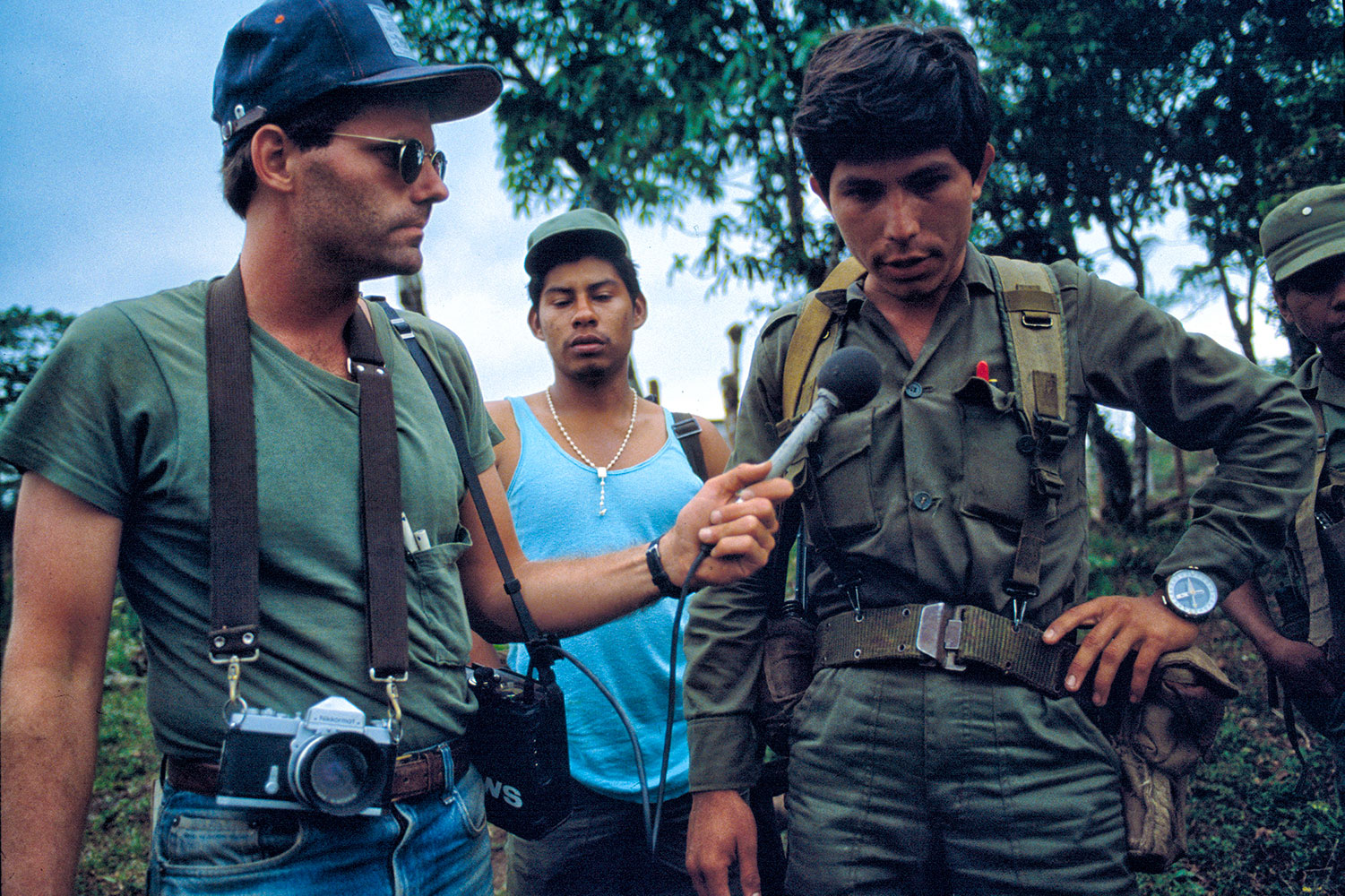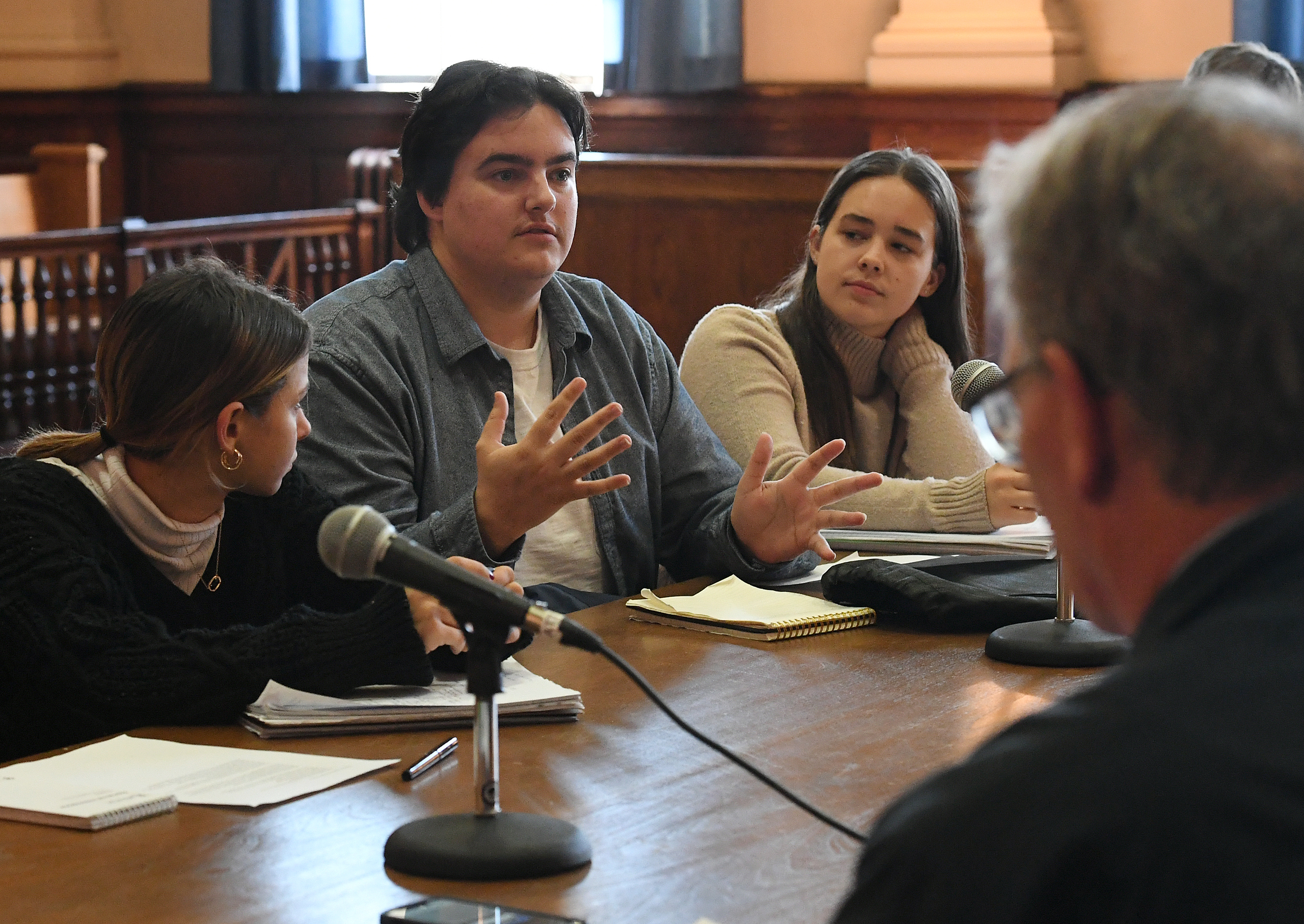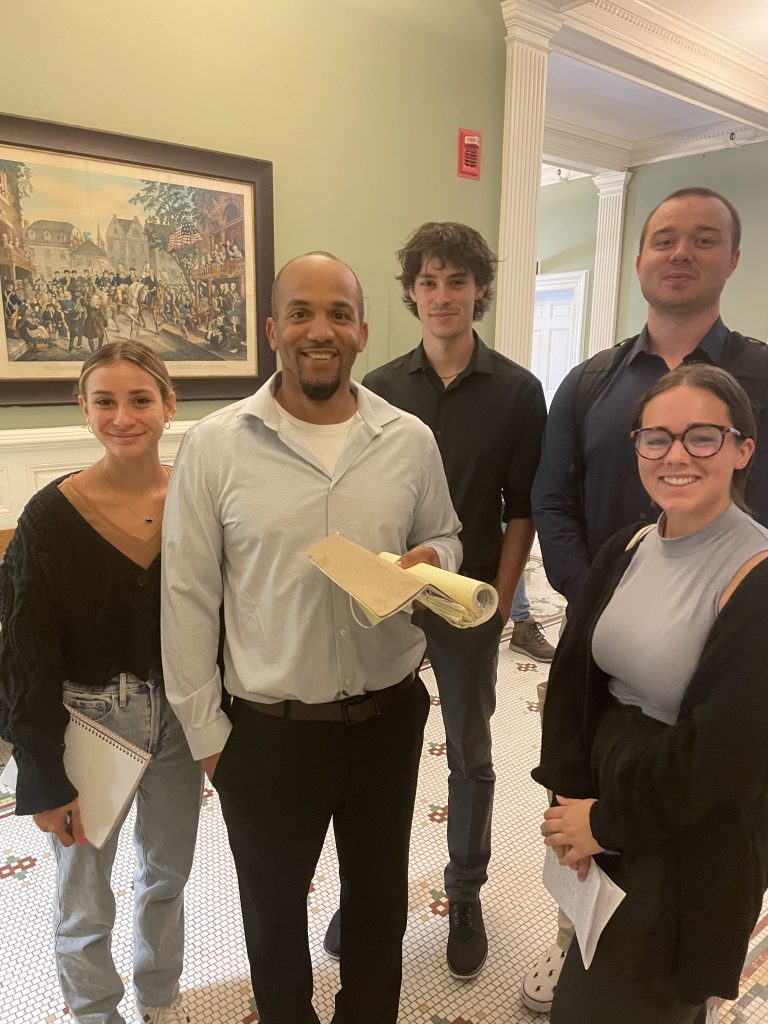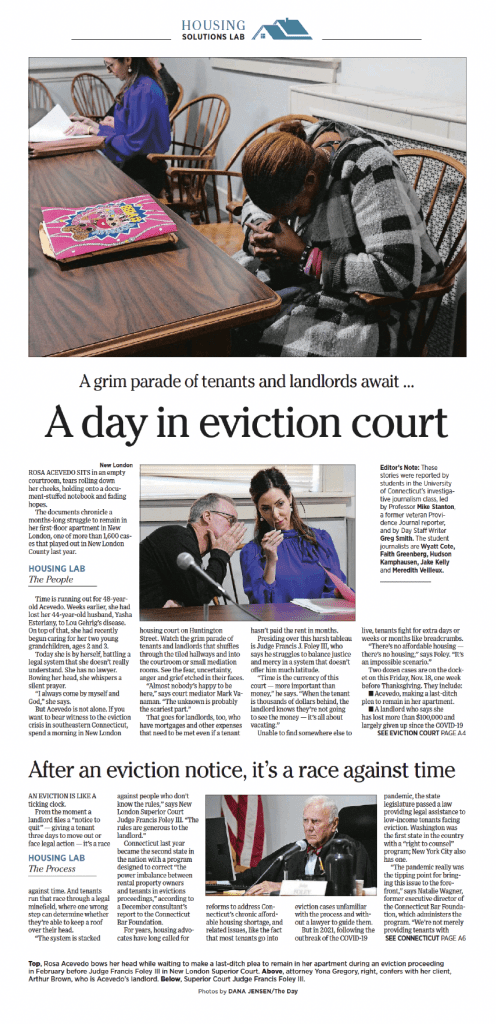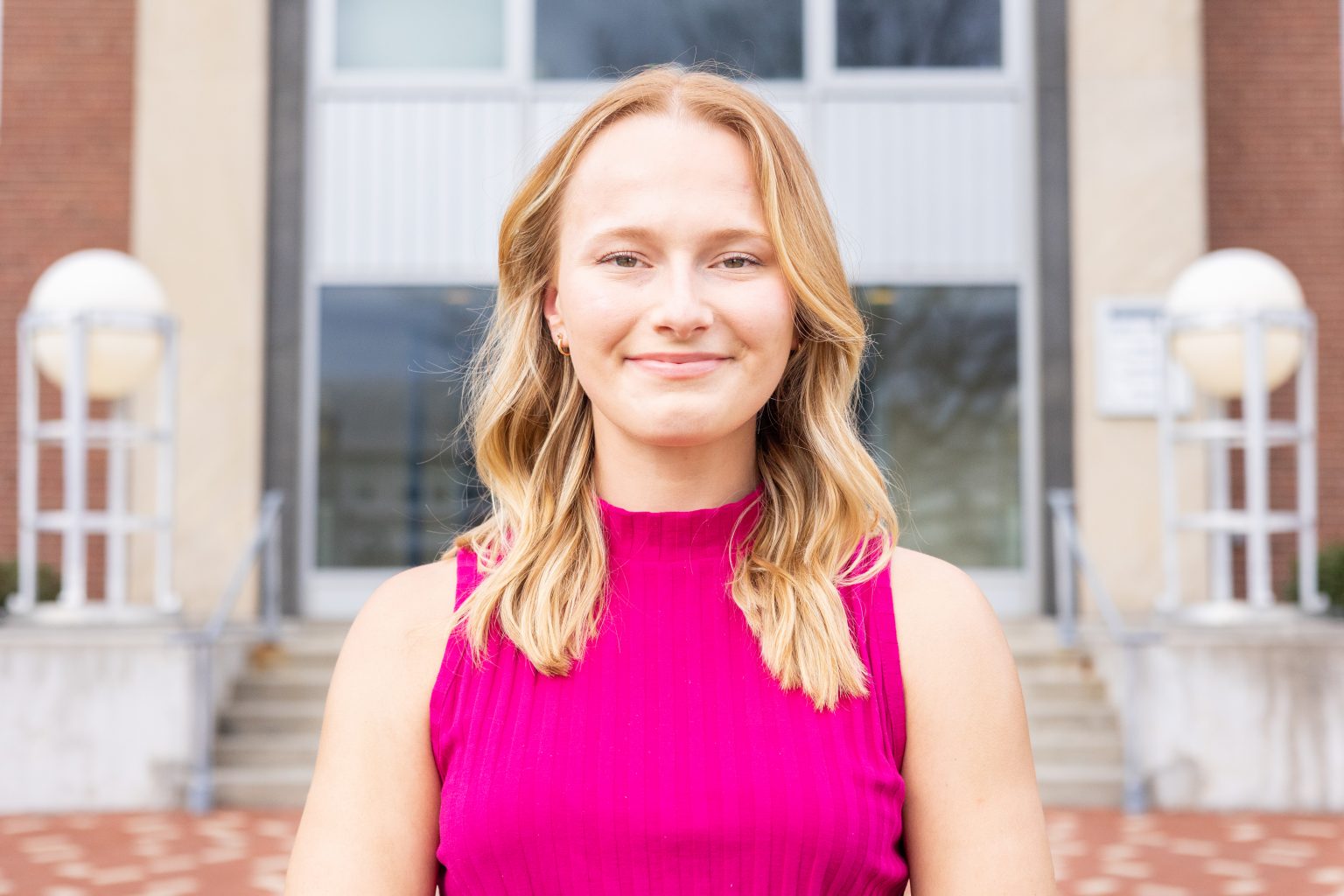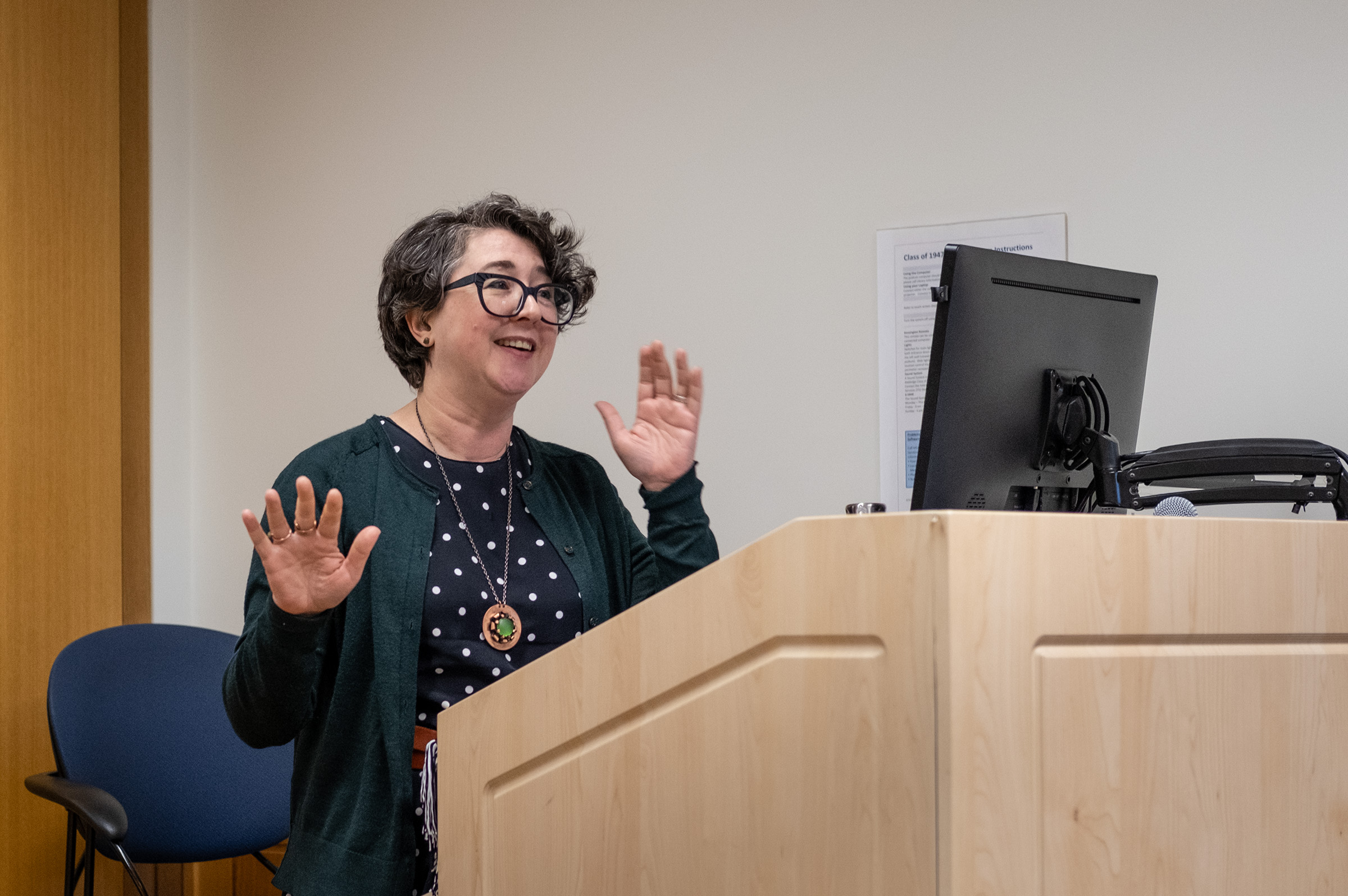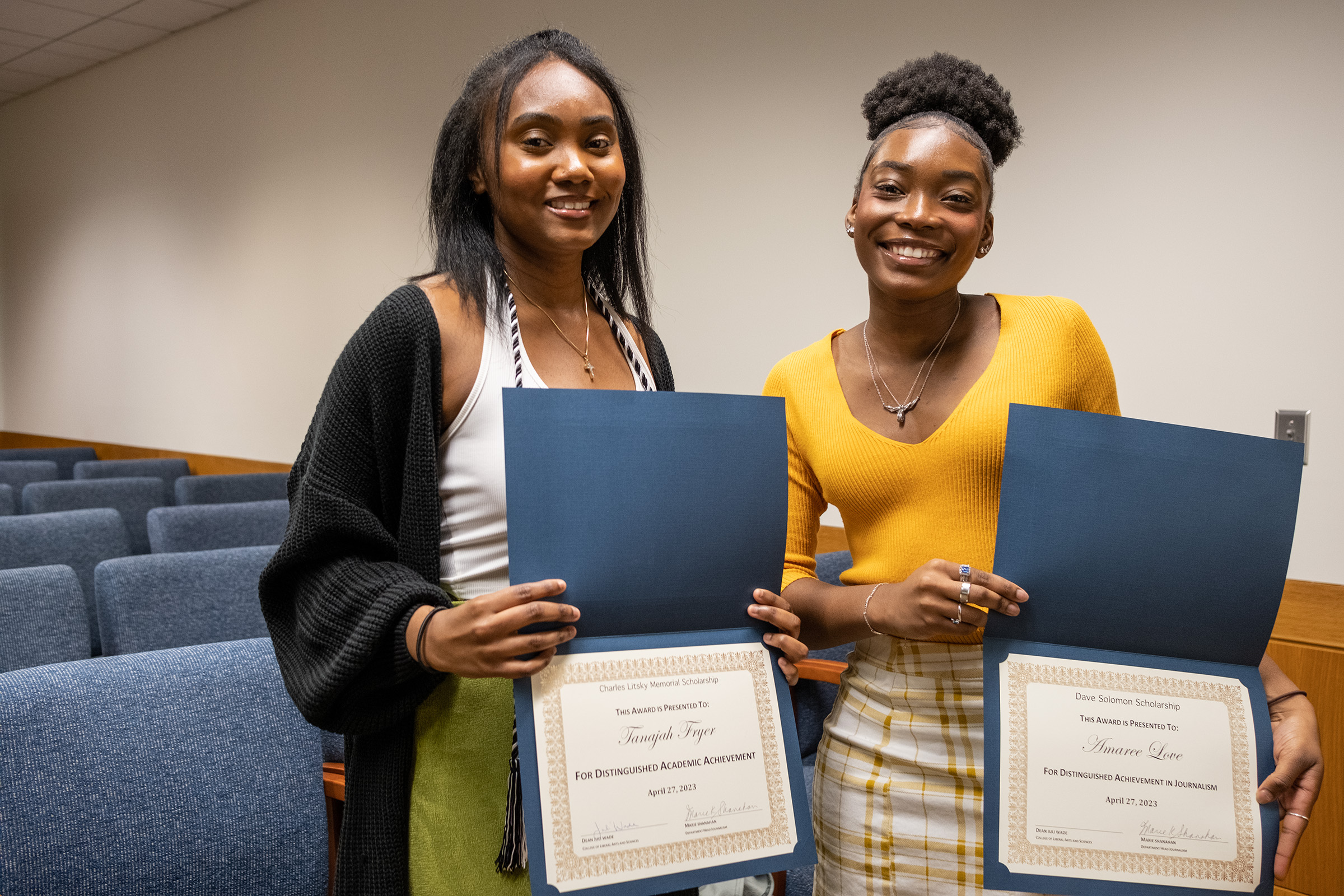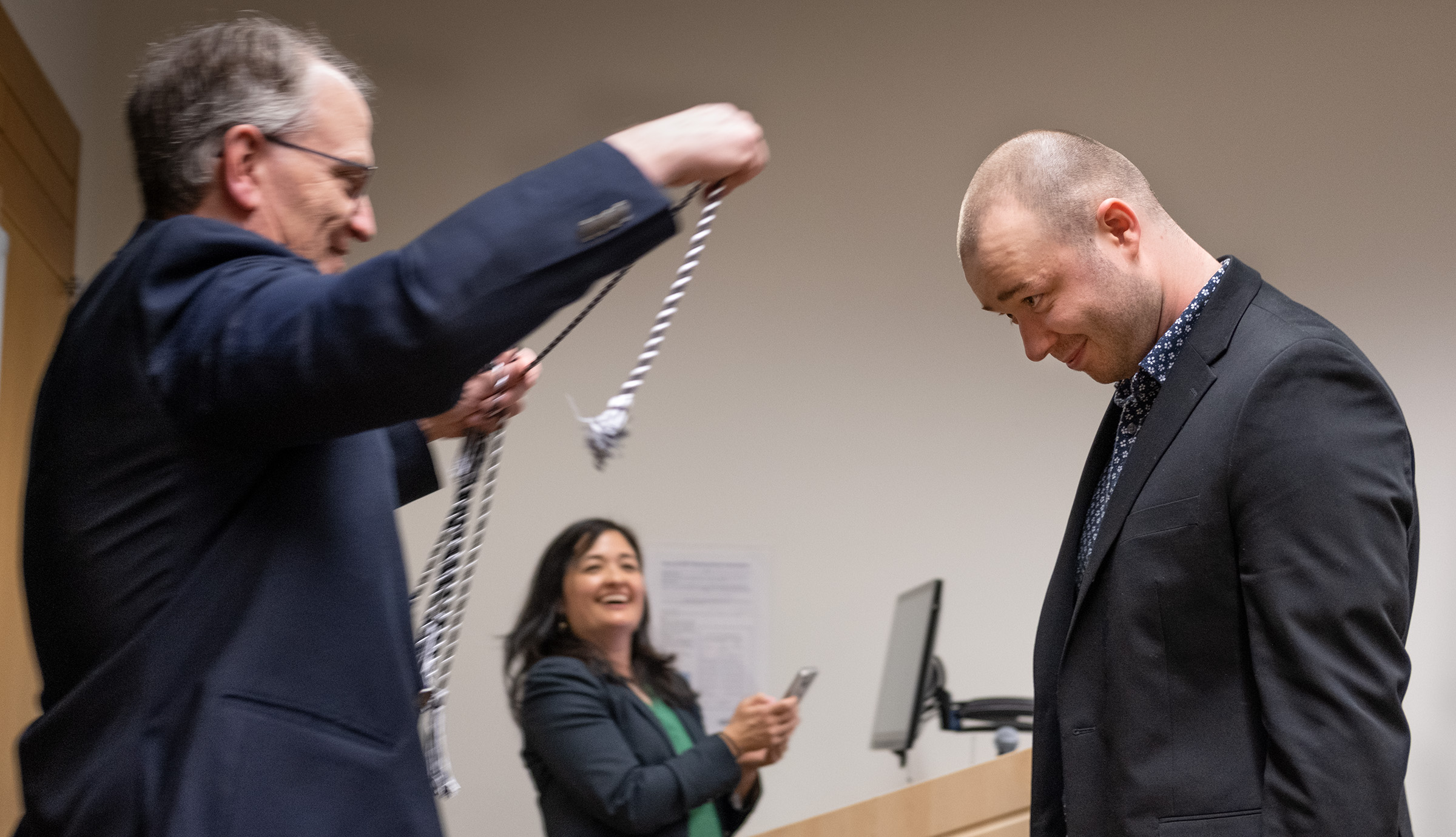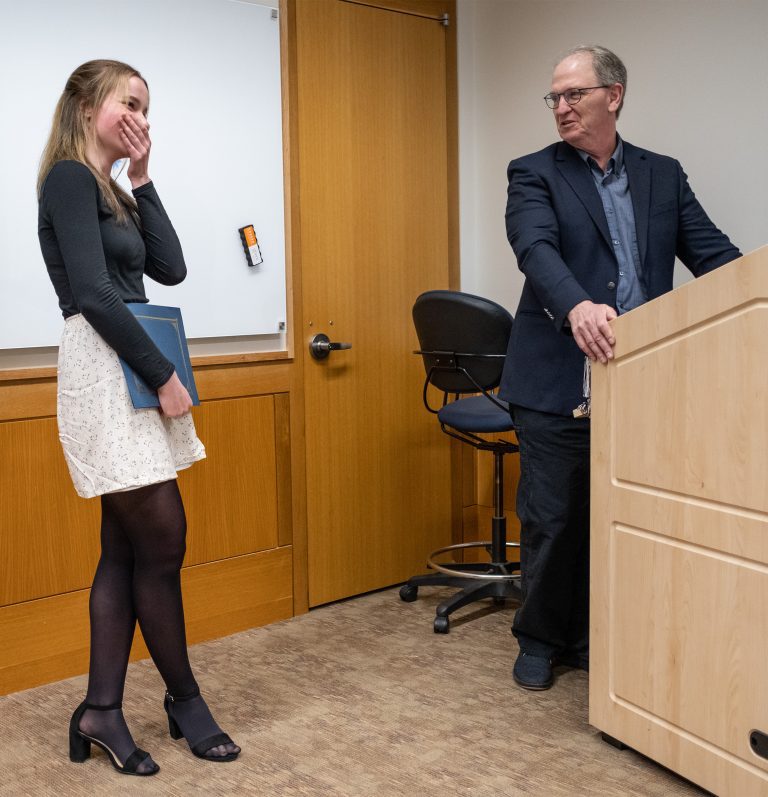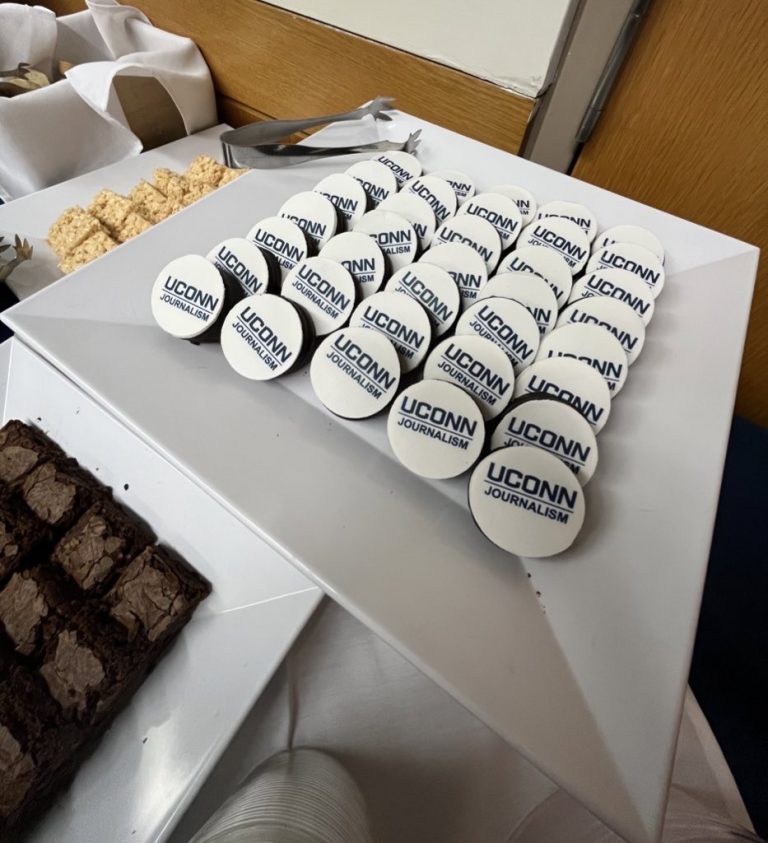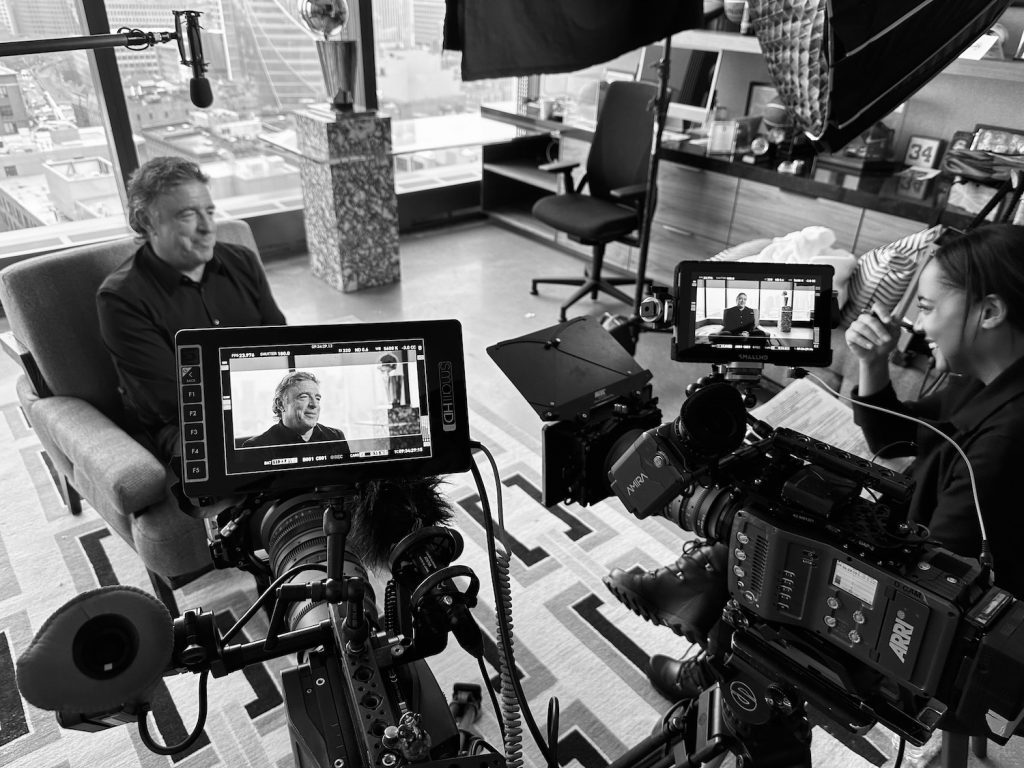
Lauren Stowell ’06 is director of the HBO Original nine-part series “Celtics City,” which debuted March 2, with new chapters airing each Monday through April 28. The documentary series chronicles the remarkable saga of the Boston Celtics, the NBA’s winningest and most storied franchise, from its founding as one of the league’s original teams all the way to its 2024 world championship. Executive producers are Emmy winners Bill Simmons and Connor Schell. Stowell, who is a multiwinner of Sports Emmy awards, started her career as a journalism major and student assistant in UConn’s Athletic Communications Office.
What was your role as the director of this massive project?
As the director, my role was to shape the vision of the film – both creatively and structurally. That meant everything from deciding how we tell the story, who we interview, and how we frame those conversations in each episode. I was responsible for everything from being in the field conducting interviews, spending hours in the edit room, and reviewing cuts with our talented team of editors and showrunners, to selecting the right musical cues and finding a composer who could help bring that vision to life.
Every detail, down to the pacing and how a moment lands emotionally for the audience, to the way the interview looks, falls under the director’s responsibility. So whether I was spending time with the daughters of Bill Russell and Red Auerbach, walking around Roxbury with Satch Sanders, or driving around Boston with Robert Parish on the way to an autograph signing, my role was to create an environment where these moments could organically happen and help drive the story we wanted to tell.
It’s a big responsibility for a series of this size, but I had great support and couldn’t have done any of it without my incredible team.
How many people were interviewed for this series?
We interviewed nearly 100 people, and I did about 70 of them. I had a big assist from our producer Sascha Gardner and also want to note [former Boston Globe reporter] Jackie MacMullan, who served as a consulting producer for the series and is the reason we got Larry Bird and Robert Parish in the chair.
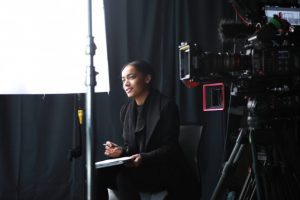
Did it surprise you that nothing like this had been done about the Celtics and how did you get involved?
Bill Simmons and Connor Schell had been discussing this as far back as 2020. Thinking about the sport documentary landscape, they asked how it was possible there had not been a definitive documentary series that told the entire history of the Celtics. Connor and Bill approached me in 2023 about the possibility of directing this film and gave me their initial treatment of the series. I was blown away. I thought I knew the history of the Celtics, but I didn’t know the depth and the layer of nuances of their story.
It’s not just what they accomplished on the court, because when you start peeling back the layers, you find out what they represent and how they have influenced the city of Boston and all of America.
What did you learn about the Celtics during the production?
I never knew that the Celtics were really at the forefront of pushing society forward. Red Auerbach and the owner Walter Brown were the first to draft a Black player in the NBA in 1950. They also had the first Black starting five in the NBA and the first Black coach with Bill Russell. We all know what Bill Russell stood for and his impact on the civil rights movement, but when we sat down with Jaylen Brown, he talked about the reverence he had for Bill Russell and his influence on the franchise that still exists today.
We also explored the relationship between the city and the team and explored the history of Boston. With a nine-hour film, you have the opportunity to do that and discover the intersections when the team influences the city, and the city influences the team.
Doing all those interviews must have taken a lot of time and coordination.
It was a very aggressive schedule, as you can imagine. A lot of the interviews were three or four hours long and we had to cover a lot of history. We started with Bob Cousy in April 2023 at his home and spent three hours with him. We wound up the interview process with Kevin Garnett in August 2024.
At first, we wondered how we were going to fill nine hours and then as we were gathering content and all kinds of layers were being uncovered, we didn’t know what to cut. Our most unique challenge was to tell a cohesive story over nine hours and in each episode.
Did you interview Ray Allen ’23 (BGS), who won an NBA championship with the Celtics in 2008?
Ray welcomed us into his home in Florida and he was incredibly honest when I sat down with him. It was a full circle moment for me, as his UConn teams in the 1990s were my entry into the world of sports as I was growing up and developed my love for basketball. He talked about his decision to play for the Celtics and then to leave to go play in Miami with LeBron James. Ray really opened up and shared his experiences and I am excited for people to hear his story.
Reported and written by Mike Enright '88, University Communications
